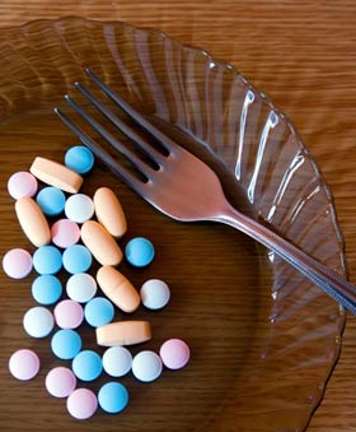
The key to keeping your transplanted organ healthy is to take your medications properly!
Generally, the first three months after your transplant are the busiest when it comes to your medication schedule. You might feel overwhelmed at first, but your transplant team is there to help you. Please call them with any questions you have - there is no such thing as a silly question.
Your transplant team’s goal is to make sure you are comfortable with all your medications before you leave the hospital. The transplant pharmacist and nurses will teach you and your parent(s) or caregivers(s) about your medications and give you a schedule to use. At first, your parents or caregivers may take a bigger role in giving your medications and following the schedule, but over time your transplant team wants you to become responsible for organizing and taking your medications!
Tips to help you manage your new medications
Many medications after transplant will be new and you might feel overwhelmed at first. Remember these points to keep you on the right track.
- Take your medications as directed. Taking too little or too much, missing doses or taking medications too close together could place you at risk for an infection or rejection or harm you in other ways.
- Learn the names of the medications and doses and the times you need to take them. Make a schedule so that you can plan your day.
- Know exactly why you need each medication.
- Keep a list of your medications. Bring the list to each clinic visit so that you can make sure it is up to date.
- Always call the transplant team before you take any new medications, whether your doctor prescribes them, you buy them “over the counter” at a drugstore or they are herbal or natural products. If your family doctor orders a new medication, please ask them to call us (or call us yourself) to make sure it is safe for you to take it.
- Never stop taking your medication because the bottle runs out. Always check with your transplant team if you need a new prescription.
- Remember to ask the transplant team any questions you have about your medications – there are no silly questions!
Review the handout Five Questions to Ask About My Medicine. It will help you be better prepared to discuss your medications with your health-care team.
Fitting medications into your daily schedule
You will need to take some medications on a strict schedule after your transplant. This schedule might be stricter than the one you followed before your surgery, but there are ways to help fit it into your daily routine.
- The transplant pharmacist will make a schedule for the medications while you are in hospital. If possible, we will change the types of dose (liquid instead of tablet for example) and dose times to make it is easier for you to take the medications properly.
- When you get home, use alarm reminders (for example your cell phone, alarm clock, watch or computer) to help you remember dose times.
- Consider using a dosette (a pill box or medicine organizer) once the medication doses have been stable for several weeks. This is a good way to organize pills once a week and avoid having to count them each day.
- Talk to the transplant team if you are having a hard time with the medication schedule or if you would like to change the timing of any of the medications.
You might find it useful to fill in your own schedule to keep track of your medications. Choose from a
vertical or
horizontal template, which you can fill in and save to your computer.






